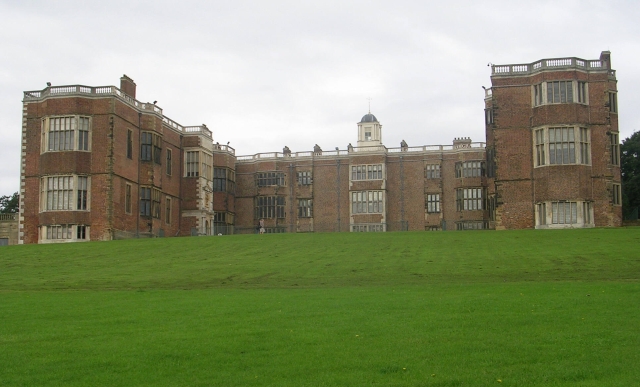|
Viscount Of Irvine
Viscount of Irvine was a title in the Peerage of Scotland.H.W. Forsyth Harwood, 'Ingram, Viscount Irvine', in J. Balfour Paul, ''The Scots Peerage: Founded on Wood's Edition of Sir Robert Douglas's Peerage of Scotland'' (David Douglas, Edinburgh 1908), V (1908)pp. 9-20 It was created on 23 May 1661 for Henry Ingram, of Temple Newsam, Yorkshire, and Hoar Cross Hall, Staffordshire. He was made Lord Ingram at the same time, also in the Peerage of Scotland. Henry was the grandson of Sir Arthur Ingram (c. 1565–1642), and on 7 June 1661 he married Essex, daughter of Edward (Montagu), 2nd Earl of Manchester by his third wife, Essex Cheke. Both of their sons succeeded to the Viscountcy, though the elder died in childhood. Lord Ingram's second son, the 3rd Viscount, was Member of Parliament for Scarborough and Yorkshire and served as Lord Lieutenant of the East Riding of Yorkshire. He married Isabella, daughter of John Machell (MP for Horsham). Five of their sons, the 4th, 5th, 6t ... [...More Info...] [...Related Items...] OR: [Wikipedia] [Google] [Baidu] |
Sir Arthur Ingram Colour
''Sir'' is a formal honorific address in English for men, derived from Sire in the High Middle Ages. Both are derived from the old French "Sieur" (Lord), brought to England by the French-speaking Normans, and which now exist in French only as part of "Monsieur", with the equivalent "My Lord" in English. Traditionally, as governed by law and custom, Sir is used for men titled as knights, often as members of orders of chivalry, as well as later applied to baronets and other offices. As the female equivalent for knighthood is damehood, the female equivalent term is typically Dame. The wife of a knight or baronet tends to be addressed as Lady, although a few exceptions and interchanges of these uses exist. Additionally, since the late modern period, Sir has been used as a respectful way to address a man of superior social status or military rank. Equivalent terms of address for women are Madam (shortened to Ma'am), in addition to social honorifics such as Mrs, Ms or Miss. Etymo ... [...More Info...] [...Related Items...] OR: [Wikipedia] [Google] [Baidu] |
Charles Ingram (British Army Officer)
Colonel the Honourable Charles Ingram (27 March 1696 – 28 November 1748), was a British soldier and politician. Ingram was the seventh of the nine sons of Arthur Ingram, 3rd Viscount of Irvine (known as Irwin in England), by Isabella Machel, daughter of John Machell, Member of Parliament for Horsham, of Hills, Sussex. He was a general in the British Army. In 1737 he was returned to Parliament for Horsham (succeeding his elder brother Henry), a seat he held until his death. Ingram married Elizabeth Brace, née Scarborough, widow of Francis Brace, sister of Ann, the wife of his brother Henry, and daughter and co-heiress of Charles Scarborough, Clerk of the Board of Green Cloth, of Windsor, Berkshire, in 1726. They had one son, Charles, later 9th Viscount of Irvine, and three daughters. Elizabeth died in December 1739. Ingram survived her by nine years and died in November 1748, aged 52. There is a portrait of Colonel Charles Ingram with two of his children, by Philippe Mercie ... [...More Info...] [...Related Items...] OR: [Wikipedia] [Google] [Baidu] |
1778 Disestablishments In Scotland
Events January–March * January 18 – Third voyage of James Cook: Captain James Cook, with ships HMS ''Resolution'' and HMS ''Discovery'', first views Oahu then Kauai in the Hawaiian Islands of the Pacific Ocean, which he names the ''Sandwich Islands''. * February 5 – **South Carolina becomes the first state to ratify the Articles of Confederation. ** **General John Cadwalader shoots and seriously wounds Major General Thomas Conway in a duel after a dispute between the two officers over Conway's continued criticism of General George Washington's leadership of the Continental Army.''Harper's Encyclopaedia of United States History from 458 A. D. to 1909'', ed. by Benson John Lossing and, Woodrow Wilson (Harper & Brothers, 1910) p166 * February 6 – American Revolutionary War – In Paris, the Treaty of Alliance and the Treaty of Amity and Commerce are signed by the United States and France, signaling official French recognition of the new r ... [...More Info...] [...Related Items...] OR: [Wikipedia] [Google] [Baidu] |


